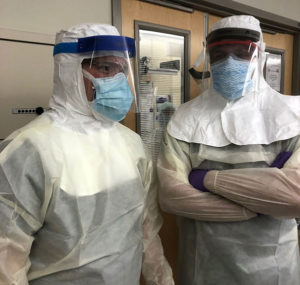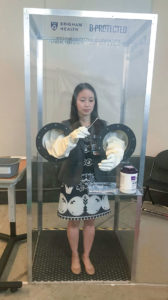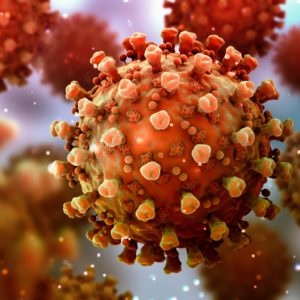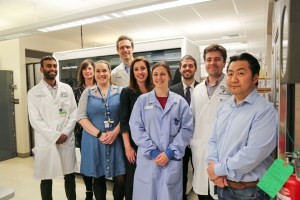Rheumatologists as Patient Advocates in the COVID-19 Era
As of early May 2020, the United States had 1.19 million confirmed coronavirus cases and nearly 70,000 deaths due to COVID-19. In the urgent quest for therapeutic solutions, some have looked to antimalarial medications such as hydroxychloroquine (HCQ).
A recent paper in Annals of the Rheumatic Diseases argues that rheumatologists as well as “researchers and patient partners must advocate for the appropriate distribution and use of HCQ, as millions of people with rheumatic diseases worldwide depend on HCQ to control disease activity and maintain quality of life.” Read More
 Dr. Matthew Rochefort and Dr. Anthony Coppolino prepared to perform a bedside percutaneous tracheostomy in a COVID+ patient.
Dr. Matthew Rochefort and Dr. Anthony Coppolino prepared to perform a bedside percutaneous tracheostomy in a COVID+ patient.
 The Brigham was selected as a clinical trial site for evaluating an antiviral medication for patients with moderate and severe COVID-19
The Brigham was selected as a clinical trial site for evaluating an antiviral medication for patients with moderate and severe COVID-19 